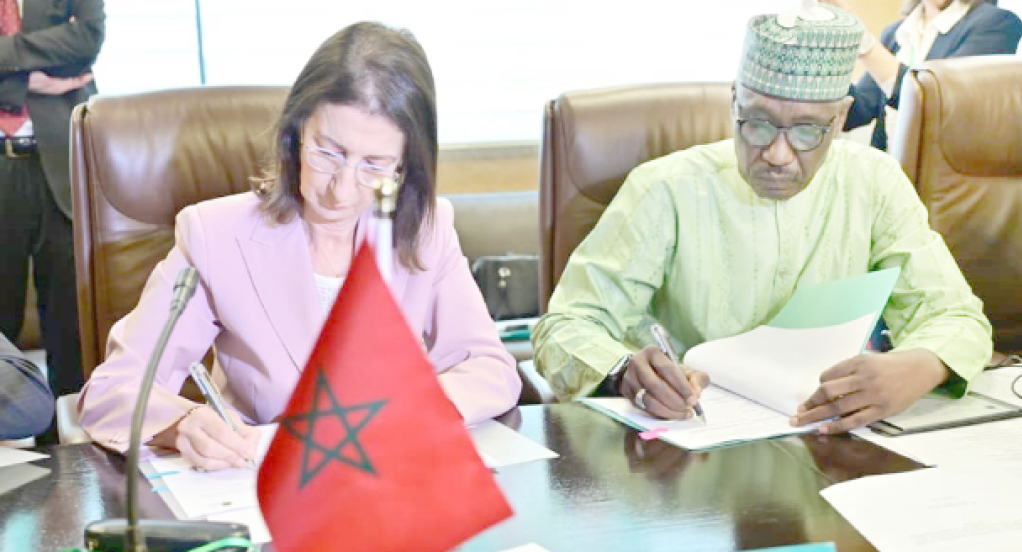Four memoranda of understanding between Nigeria, Morocco and 12 other countries were signed Friday in Abuja as part of the Nigeria-Morocco N17.5trillion ($25 billion) Gas Pipeline Project.
The tripartite memoranda were signed between the Nigerian National Petroleum Company Limited (NNPC) and the Office National des Hydrocarbures et des Mines (ONHYM) of Morocco on one hand, and the Société Nationale des Opérations Pétrolières of Cote d’Ivoire (PETROCI), the National Oil Company of Liberia (NOCAL), the Société Nationale des Hydrocarbures of Benin (SNH-Benin), and the Société Nationale des Pétroles of the Republic of Guinea (SONAP) on the other hand.
Once completed, the project will enhance the monetisation of the natural gas resources of the affected African countries and offer a new alternative export route to Europe.
In his remarks, the Group Chief Executive Officer of the NNPC Ltd, Mr Mele Kyari said, “As a commercial enterprise, NNPC Ltd sees this project as an opportunity to monetise Nigeria’s abundant hydrocarbon resources, by expanding access to energy to support economic growth, industrialisation and job creation across the African continent and beyond.”
- How ‘foreign companies’ train Nigerians to become professional swindlers
- Bolanle Ninalowo performs at Extraction 2 fan-facing event
He said African countries are determined to take their destinies into their hands. “We need our energy efficiency. This gas resources available in Nigeria, Senegal, and few other countries will now be pulled together by this pipeline network to connect all of us, make energy available to all of us and also create prosperity in our various countries
“This line can carry up to four billion scopes of gas every day. All the coastal West African countries will have the pipeline pass through them, in addition to four landlocked countries of Cote d’lvoire, Niger, and Burkina Faso.
“The financial sector of the world will finance funding. We already have a line of sight around where this funding will come from. We don’t have any fears about funding. It is estimated to cost about $25 billion.”
Also speaking, the director-general of ONHYM, Amina Benkhadra, said the project would accelerate the access to electricity for all the people in the region. It will be a tool to increase industrialisation and enhance the economic development of these areas of our continent.
She said, “This is an essential milestone in the development and realisation of this important project as we are finalising the field engineering study and we are ready to start very soon in July.
“In September of this year, all the surveys and studies of all the countries will help accelerate this work, facilitate the work and coordinate between all the stakeholders in each country and with all the authorities for the implementation of the next phases of this project.”
In his remarks, the ECOWAS Commissioner for Infrastructure, Energy and Digitisation, Mr Sédiko Douka, said the gas pipeline project is significant as it would help strengthen the region’s electricity production/generation capacity, stimulate industrial and agricultural development, and contribute to the energy transition by using a source of energy that is cleaner than other fossil fuels.

 Join Daily Trust WhatsApp Community For Quick Access To News and Happenings Around You.
Join Daily Trust WhatsApp Community For Quick Access To News and Happenings Around You.


